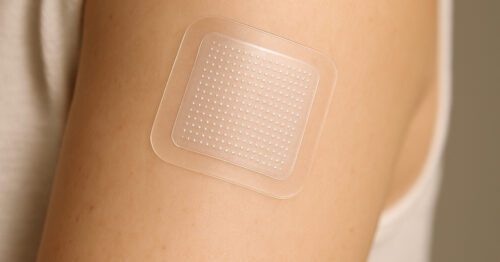When Is the Right Time to Start Anti-Aging Skincare Products?
If you’re anything like me, the thought of using anti-aging skin care products didn’t cross your mind until those first little wrinkle lines started showing up. Unfortunately, as it turns out, that’s far too late. In fact, for me, I began at least ten years later than the recommended age. So when is the “right time” to start using anti-aging skincare products?
While everyone is different, you may be surprised to learn that experts now agree you’ll want to get started with a proper skincare regimen around your mid to late twenties. If you think that’s too young for anti-aging products, you’re not alone. For many, that comes as a surprise. Although our elders may not have started their routines at such an early age, times are changing, and so are our skin cycles.
What Causes Our Skin Aging Cycle to Begin?
For starters, at age twenty-five, the skin degeneration process begins setting in. That alone is reason enough to start adding anti-aging treatments into our routine. Next, we have to take a look at our lifestyle choices. Let’s begin with dietary habits. The amount of water you drink, your alcohol consumption, and the food you consume play a crucial role in your health, which includes your skin. These foods are known to help reverse aging:
- Fruits and vegetables
- Whole foods such as whole wheat, sweet potatoes, and brown rice
- Natural sweeteners such as honey, dates, and coconut sugars
- Omega-3 fatty acids rich foods such as olive oil, fish, and walnuts
Additionally, your level and regularity of exercise, sleep quality, stress level, and whether you smoke are factors that play a role in determining how fast you will age.
Environmental Factors Have Sped Up Our Skin Cycles
Aside from the personal choices we make, there are environmental factors that affect our skin. Pollution, for example, can cause breakouts and rashes. Dust and dirt particles that accumulate on the surface of your skin can clog pores. This is most primarily a concern in urban areas where studies show that residents have skin that’s up to ten percent older than those residing in non-urban areas.
Climate can also be tough on your skin. Cold temperatures tend to go hand in hand with low humidity, which causes the skin to dry out and eczema to flare up. On the flip-side, warmer, more humid climates can lead to sweating, which can leave you prone to more breakouts. This could potentially lead to heat rash, which happens when sweat ducts get closed off, and moisture gets trapped below the surface of the skin.

While we love the Vitamin D acquired from the sun, its ultraviolet rays may be the single most harmful thing for our skin. UV exposure can reduce our skin’s elasticity, causing wrinkles, leathery skin, brown spots, and premature aging. Worse yet, overexposure can lead to skin cancer. For this reason, applying sunscreen is the best thing you can do for your skin.
Establish a Daily Skin Care Routine Today to Wear Younger Looking Skin Tomorrow
Your first step to achieving, or maintaining, younger-looking skin is to establish a daily skincare routine. No one regime works for everyone. I recommended speaking with your dermatologist to learn what will work best for you. In the meantime, here are some steps you can try adding to your morning routine to get started on the right track.
- Gently cleanse your face with water or a mild facewash.
- If desired, apply serums and under-eye cream.
- Apply a small amount of moisturizer using upward motions.
- Apply sunscreen and let dry for 10-15 minutes.
- If desired, apply make-up.
Starting an anti-aging skincare routine has never been more critical to your health than it is now. If you are in your twenties or, like me, well past those youthful years, following a daily skincare routine will leave you with healthy, glowing skin.
Are you interested in manufacturing beauty products? We would love to hear from you. Easily connect with us by submitting an inquiry through our website. Or, reach us by phone where one of our specialists is ready to assist you. Your product success is the number one priority here at Moe’s Group.





